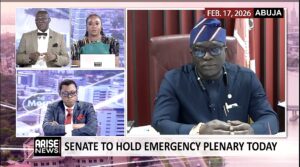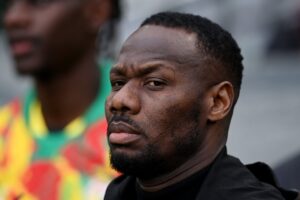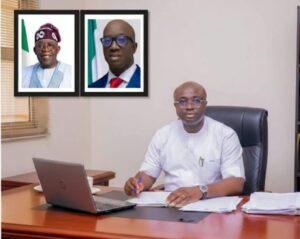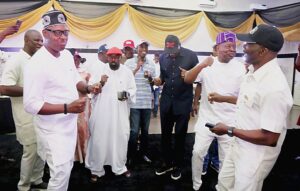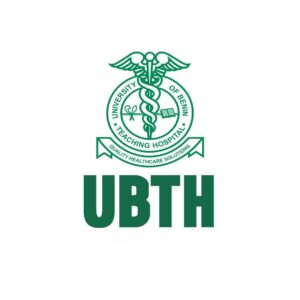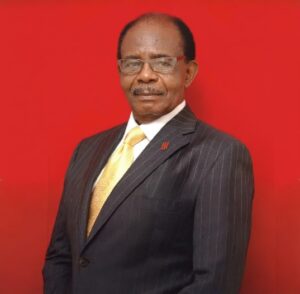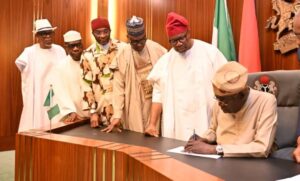2023 Presidential Election Petition Court Judgement At A Glance!
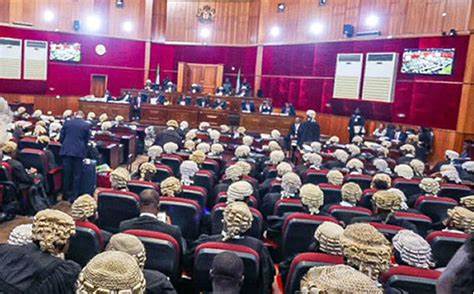
By Editor
The legal fire works that followed the 2023 presidential election at the Presidential Election Petition Court has ended at the Appeal Court level. We present the judgement at a glance in bullet points.
Oliver Wendell Holmes of the American Realist School of Jurisprudence said “Law is the Prophesy of what Court says it is.”
So, if you like argue till tomorrow, the law is what court says it is. The lordships of the Court of Appeal delivered their judgment based on the evidence adduced before them, the arguments canvassed before them by lawyers on both sides.
The justices were obviously not impressed with the depth of research by lawyers, to the extent that they chided some, for inadequacies in their research to build their clients’ cases.
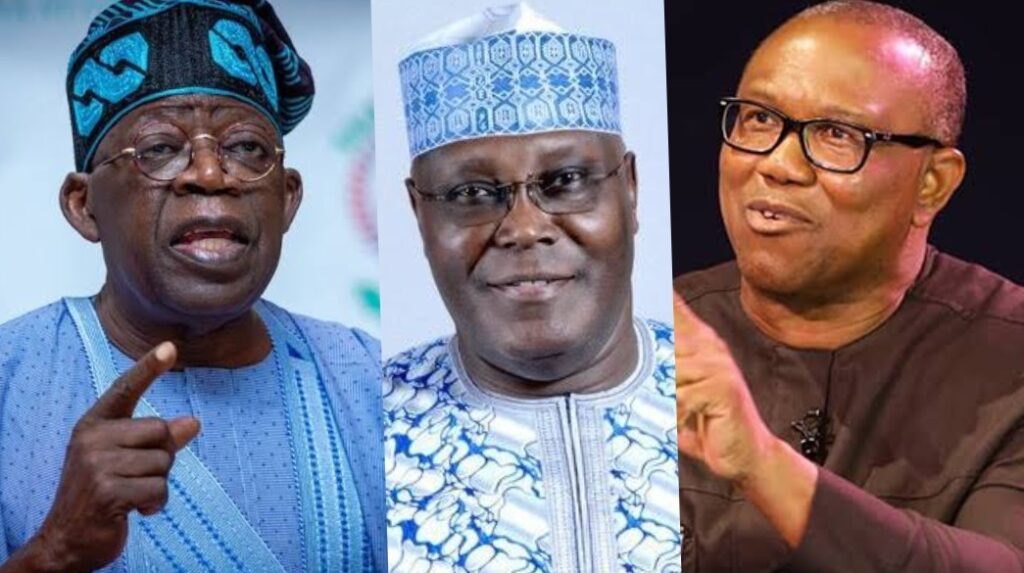
This is not the first time judges will reprimand lawyers handling election petition.
On August 9, 2007, Justice Olabanji Orinoloshe, the 2007 Edo Governorship Tribunal Chairman, while addressing Prof Itse Sagay, SAN, who was at the time, lead counsel to Comrade Adams Oshiomhole and the Action Congress, shortly after adjourning ruling on the AC’s prayer to tender documents listed in their petition, expressed his disappointment at the low level practice of law in Edo State.

“Don’t leave it (assignments) to juniors, I am not happy with the level of practice around this area.”
Likewise, on that day, the Tribunal Chairman castigated the Peoples Democratic Party (PDP) and then Governor Prof Oserheimen Osunbor for acts capable of undermining and intimidating the Tribunal.
The open court drama started shortly after counsel to PDP an Osunbor, Chief Alex Izinyon, SAN struggled to attribute a contemptuous publication to “unseen hands.” Izinyon was cur short instantly by Justice Orinoloshe and accused him of prematurely publishing his submission in the ‘Nation Newspaper’, to intimidate the Tribunal.
The Chairman warned Izinyon and PDP that a reoccurrence will earn drastic action for the offenders.
“We will no longer tolerate such contempt of the Tribunal. This Tribunal cannot be intimidated, if you have money, spend the money to develop the state as we cannot be corrupted.”
Observers of the trial process at the 2023 Presidential Election Petition Court agreed that the defense lawyers failed to conduct enough research that would have helped their arguments.
For the records, the Nigeria’s Presidential Election Tribunal ruled on September 6, 2023, that Nigeria’s the opposition Peoples Democratic Party (PDP) and Labour Party (LP), both failed to prove claims of electoral malpractice against the ruling All Progressives Congress (APC) in February 25, 2023 National Assembly Elections.
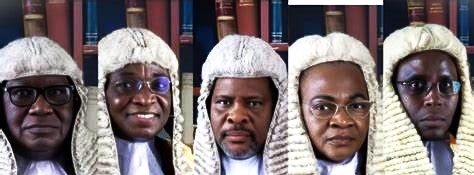
“This petition is hereby declared unmeritorious,” one of the judges said, as the tribunal rejected the opposition challenge to Bola Ahmed Tinubu’s win in the presidential election.
Below are some footnote that summarizes the epic legal battle at Nigeria’s Presidential Election Petition Court…
- The justices were not impressed with the depth of research by lawyers, they chided for inadequacies in their research to build their clients’ cases.
- Double nomination case against Senator Kashim Shettima was incompetent and eligible to Contest.
- President Tinubu was qualified academically to contest for president.
- Fraud case against President Tinubu’s not proven
- President Tinubu was cleared of drug related crimes in the US.
- Residents in Abuja have no special consideration; 25% in FCT not necessary to become president.
- INEC is independent! Therefore at liberty to decide the mode of transmission of results.
- Evidences by Peter Obi did not prove he won the Presidential Election.
- Double Nationality case against President Tinubu was dismissed.
- The court dismisses the issue of non-transmission of result sheets to IReV.
- The court held that there is no law that says INEC must ‘mandatorily’ transfer or transmit the results of the election from the polling units electronically.
- It says the law empowers INEC to decide the means of collation of the results of elections in Nigeria.
- According to the PEPT, INEC regulations and the Electoral Act give room for manual collation of results. It said electronic transmission is optional at best.
- The court added that the only device that must be used by INEC for elections is the Bimodal Voters Accreditation System (BVAS)
- It noted that there’s no regulation showing BVAS must be used to electronically transmit results from polling units.
- The Tribunal ruled that Peter Obi and his Labour Party failed to prove that, President Bola Tinubu of the All Progressives Congress (APC) was convicted for money laundering in the United States of America.
- The five-man panel led by Justice Haruna Tsammani ruled that no record of criminal arrest or conviction was established against Tinubu by the petitioners.
- The court rejected the reports of forensic analyses tendered by LP’s three witnesses. According to the court, they were “either made during the pendency of the case or by an interested party.”
- The Tribunal rejected the European Union report on the polls, because it was not tendered by an official of the body.
- The Court also declared APC’s petition challenging Obi’s membership of the LP as incompetent.
- Justice Abba says membership in a political party is an internal affair.
- Tribunal wondered how Obi and LP’s petition could be effectively determined without joining the candidate (Atiku) who placed second in the polls.
- The Tribunal ruled that LP’s widespread irregularities claim was generic.
- The Tribunal agreed with the respondents that Obi’s petition only alleged that there were widespread irregularities without giving the particulars and the polling units.
- Justice Abba Mohammed held that in a presidential election held in 176,866 polling units in 774 Local Government Areas, it would be improper not to specify where there were irregularities.
- According to him, the petitioners only made generic allegations. “Pleading must set out material facts and particulars. In the instant petition, there was no effort to prove specific allegations, particulars of complaints.”
- The Tribunal held that the law is clear that where someone alleges irregularities in a particular polling unit, such person must prove the particular irregularities in that polling unit before that petition can succeed.
- The Tribunal said the petitioners did not prove the particular polling unit where the election did not take place nor did they specify particulars of polling units where there were alleged complainants of irregularities.
- “It was only in one instance that figures were given of alleged suppressed votes and we all know that elections are about figures.” The Tribunal ruled.
- “LP alleged that INEC reduced their scores and added it to APC votes but failed to supply particulars of what they actually scored before the said reductions, neither did they supply the polling units where it happened.” The Tribunal held.
- The Tribunal Struck out APM’s suit against Shettima and Tinubu.
- LP failed to show how many vote it won the election.
- The Tribunal also ruled on the issue of non-joinder of Atiku Abubakar who came second and wondered how Obi and LP’s petition could be effectively determined without joining the candidate who placed second in the polls.
- The Tribunal sat for 11 hours , starting from 10am on August 6, to 10:35pm, August 6, 2023.


